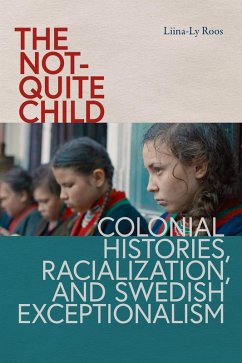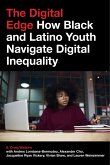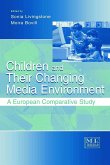Examines Swedish depictions of childhood that expose the country's colonial past and racial hierarchies Figures like Pippi Longstocking and Greta Thunberg exemplify an ideal mainstream Swedish childhood: they are autonomous, competent, and the voices of moral truths. In this innovative work, Liina-Ly Roos analyzes the figure of the "not-quite child"-children who, while appearing white, have been marginalized due to historical racialization and colonialism-to challenge this established ideal. Through analyses of films and literature that portray Indigenous Sámi, Tornedalian, and Finnish-speaking children, The Not-Quite Child reveals how these figures disrupt the normative understanding of growing up in Sweden. These cultural texts are filled with tensions of assimilation, invisibility, and the struggle to grow in a society that demands conformity to a specific "Swedishness." The children in these stories are both minoritized and, at the same time, have the privilege of passing, and share a long cultural history with and within the dominant culture. Through nuanced attention to these important narratives, The Not-Quite Child contributes to dialogue on the complexities of identity, race, and the hidden colonial legacies that continue to shape understandings of childhood in Sweden.
Hinweis: Dieser Artikel kann nur an eine deutsche Lieferadresse ausgeliefert werden.
Hinweis: Dieser Artikel kann nur an eine deutsche Lieferadresse ausgeliefert werden.








